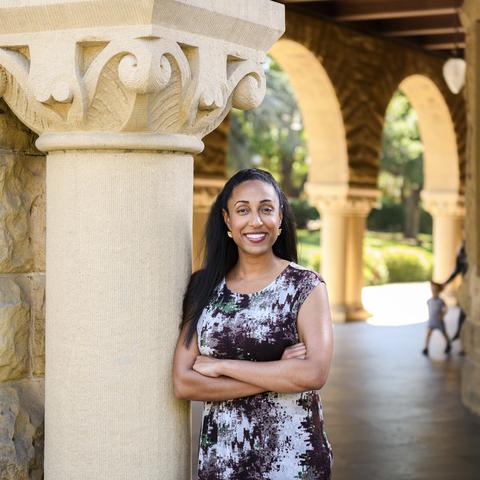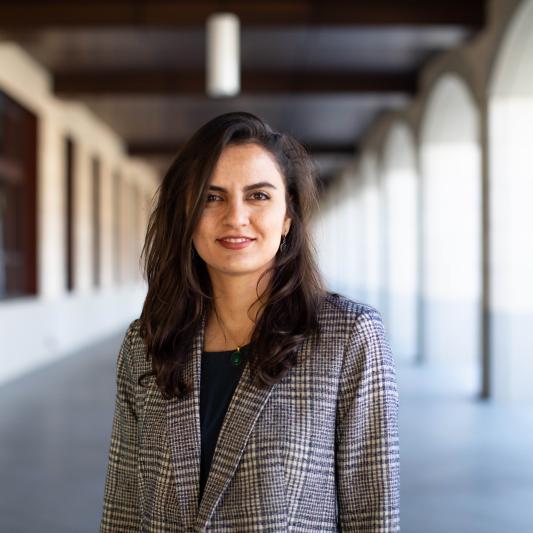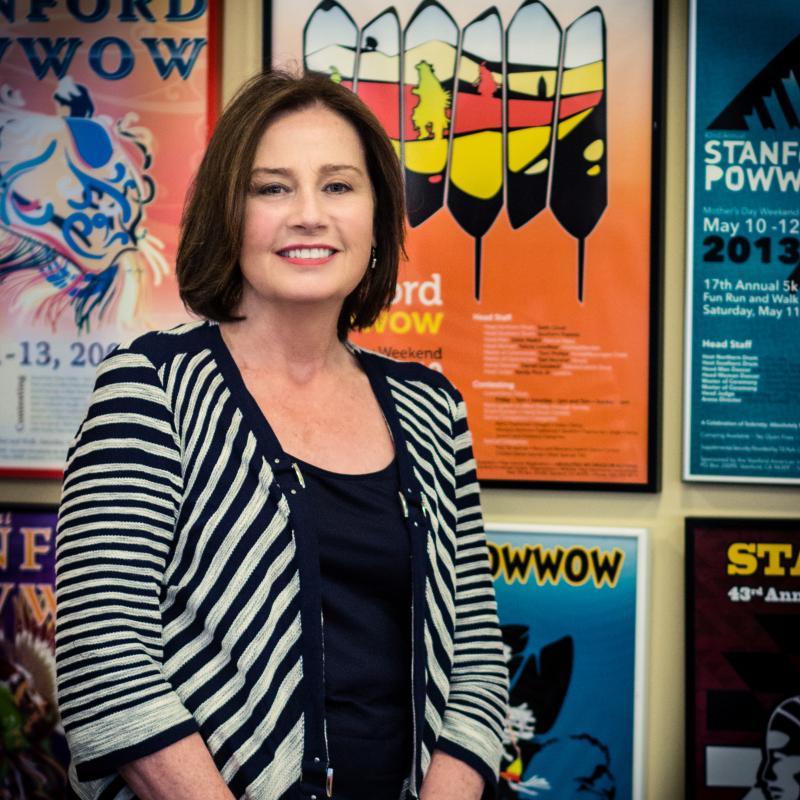
Farzana Saleem
Farzana Saleem, an assistant professor at Stanford Graduate School of Education, is interested in the way Black youth and other young people of color navigate adolescence—and the racial stressors that can make the journey harder. A racial stressor can be a direct stressful or traumatic experience, like teasing or bullying, but it also can be indirect, Saleem says. “It can be overhearing a racial conflict. It could be seeing on the news that someone who looks like you was targeted or even killed because of racial bias.”
Saleem’s work focuses on how racial stressors affect young people’s mental health, as well as on ways of helping youth of color understand these experiences. She’s especially interested in the influence of “ethnic-racial socialization,” or the complicated ways that children learn about race and racism. Messages conveyed within families—such as “You should be proud to be Black,” “You’ll have to work twice as hard to get ahead” or “Everyone’s the same, race doesn’t matter”—can influence how young people respond to racial stressors. Initially she focused on Black parents’ racial socialization, but more recently she’s expanded her scope to look at the role of schools.
Saleem, who grew up in a bicultural family in Atlanta (her father is South Asian Indian, her mother African-American from the South), earned a doctorate in clinical-community psychology at George Washington University and completed an internship with a specialization in trauma at Children’s Hospital Los Angeles. She received two postdoctoral fellowships to conduct research on family and school racial socialization at UCLA.
Saleem joined the GSE faculty in 2021. In addition to teaching, writing and setting up relationships with local school districts to further her research, she works to translate her research for the public. Saleem and her colleague received a grant from the American Psychological Association’s Committee on Early Career Psychologists to develop “Communicating Race Fully,” transforming research on race, culture and mental health into useful information and tools.
Saleem also calls herself a “self-proclaimed dessert critic.” She’s a big fan of Cronuts, the trendy cross between croissants and doughnuts developed by pastry chef Dominique Ansel, but she also has a soft spot for a childhood favorite: her grandmother’s sweet potato pie. “I do think that I’ve almost replicated her recipe,” she says. “It almost tastes like hers. I’m getting there.”
Photo credit: Toni Bird



